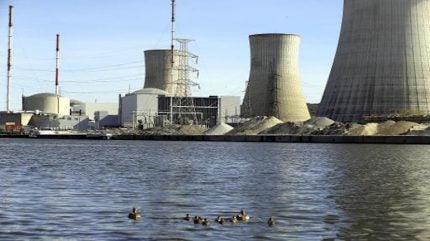
European Union (EU) competition regulators on Friday approved Belgium’s plan to grant state aid to Electrabel (part of French energy company Engie) to extend the lifespan of two nuclear reactors.
In December 2023 Belgium and Engie agreed to extend the life of the two nuclear reactors – Doel NPP unit 4 near Antwerp and Tihange NPP unit 3 near Liege – to preserve the security of electricity supply in Belgium and neighbouring countries.
Belgium has seven nuclear power reactors – three at Tihange near Liège and four at Doel near Antwerp. All seven units are pressurized water reactors (PWRs) operated by Electrabel. Apart from Doel 1&2, which are 450 MWe plants, the others have a capacity of approximately 1000 MWe. Doel 3 was permanently shut down in September 2022 followed by Tihange 2 in January 2023 after 40 years of operation, in line with Belgium’s 2003 nuclear phase-out policy.
Under the phase-out law, all seven nuclear reactors were to be closed by 2025. In March 2022, in light of concerns about security of supply in the context of the energy crisis and war in Ukraine, the government decided to keep the two newest Belgian nuclear power plants, Doel 4 and Tihange 3, operating for an additional 10 years.
In June 2024, Belgium notified the European Commission (EC) of its plan to support the lifetime extension of the two reactors. The EC opened an in-depth investigation in July to assess the need, appropriateness and proportionality of the measure. The Commission said it had doubts regarding the contract-for-difference (CfD) design and the proportionality of the (combination of) the financial arrangements.
The beneficiaries of the measure are Electrabel and Luminus, a subsidiary of EDF, as well as ‘BE-NUC’, a newly created 50-50 joint-venture between the Belgian State and Electrabel. Following the measure, both reactors will be co-owned by BE-NUC with an 89.8% share, and Luminus with an 10.2% share.
The proposed support to be considered included:
- Financial and structural arrangements: (i) the creation of ‘BE-NUC’ to cover the necessary capital expenditure; (ii) a CfD , ensuring stable revenues for a period of 10 years, and limiting excess remuneration; (iii) further financial protective mechanisms, such as a loan and an operating cashflow guarantee. The BE-NUC undertook to issue shareholder loans and inject equity totalling €2bn ($2.09bn) to cover the capital cost of the extension.
- Transfer of liabilities from Electrabel to the Belgian State concerning nuclear waste and used fuel, against the payment of a lumpsum of €15bn; and
- Risk-sharing and legal protections in the event of future legislative changes, specifically concerning nuclear operators in Belgium or Electrabel’s nuclear activities.
The EC has now approved the measures. “The Commission concluded that the aid is necessary and appropriate to achieve the objective pursued, as well as proportionate as it is limited to the minimum necessary, while competition distortions caused by the measure are minimised,” a statement noted.
The EC said Belgium had clarified that “the nuclear reactors are based on an old technology whereby it is not secure nor technically feasible to often ramp up and down the power (‘modulate’). The number of modulations is therefore capped by the Belgian nuclear safety authority, which limits the flexibility of the reactors and the capacity of the nuclear operator to respond to market signals”.
Regarding the necessity and appropriateness of the additional financial support mechanisms on top of the CfD, in particular the creation of BE-NUC, as well as the loans and the operating cashflow guarantee, EC said Belgium clarified that these instruments were complementary, covering different risks related to the project, thus necessary to ensure its long-term financial viability.
“Following the additional evidence and modifications of the measure, the Commission concluded that the aid is necessary and appropriate to achieve the objective pursued, as well as proportionate as it is limited to the minimum necessary, while competition distortions caused by the measure are minimised. On this basis, the Commission approved the Belgian measure under EU State aid rules.”






